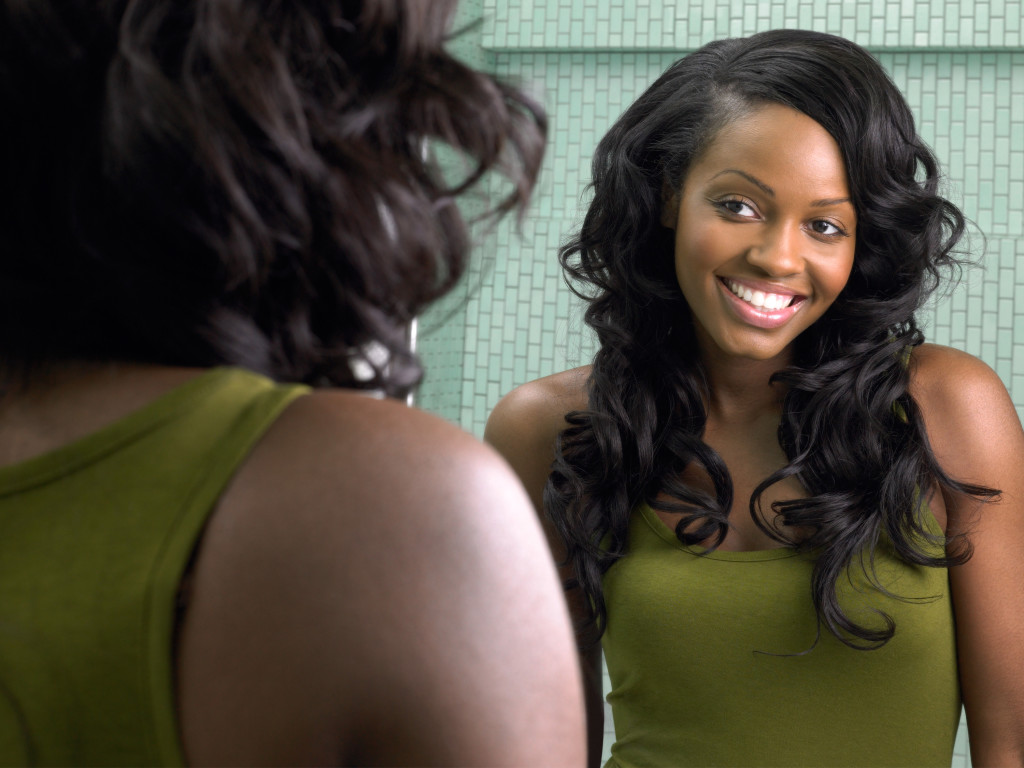It is suspected that the first mirrors were simply dark pools of still water used by humans beginning in 6000 BC. Over many thousands of years, mirrors began to be manufactured using polished stone, precious metals and glass. Mirrors have gone from being expensive items for the uber-wealthy to free apps on your smart phone. Today, mirror images are everywhere… even in your computer screen as you read this.
You have a constant opportunity to see your physical self in the world today.
But who would you be without a mirror to reflect you? Without your bathroom mirror, it is impossible to fully see yourself. Sure you can look at much of your body, maybe catch a fleeting glimpse in the reflection in a window, but there are parts of yourself that are completely hidden without a mirror to look in.
This is also true for your non-physical self.
Your partner in your non-physical mirror. Your partner, your love interest, or your ex… they all provide you with an essential tool for your own personal (and I would argue spiritual and emotional) growth.
Here is how it works.
Stage One: The Beauty Mirror
You catch a glimpse of a someone and your heart skips a beat. Your body physically responds and your feelings follow on cue. As you spend more and more time together in those early days, weeks and months, the “rightness” of your connection feels uncanny.
You and your partner are in a house of beauty mirrors—both reflecting the parts of yourselves that are healthy, balanced and well-mannered. It can look and feel blissful and we call it “falling in love.”
Stage Two: The Shapeshifting Mirror
As you settle in to the relationship and life becomes a bit more routine, you start to catch peeks of imperfection. Annoyances arise and it seems that maybe your partner is changing. She may not seem like the same person who you first began to date months before. He may seem to be becoming someone who is unfamiliar to you.
You are now experiencing, not your partners imperfections, but your own. Yes, your partner might be the one who stays out late without calling you, but you are the one who feels wronged, righteous and rejected. You are getting quick glances of parts of yourself that you haven’t seen before.
Stage Three: The Broken Mirror
Generally, this happens after one of three things occurs: 1) you move in together, 2) you get married or 3) you begin to procreate.
This is the period when you might wonder, “Who is this person?!” There is nagging, arguing, quiet resentment and maybe loud boisterous fights. You may find yourself talking to your friends complaining about your partner bitterly…about the broken promises, insensitive actions, selfishness and adolescent behavior.
In this stage, yes, you are seeing some of what your partner is doing; but more importantly, you are seeing your own reactions to them. This reactive part of you, left unchecked, can (and likely will) create a downward spiral in your relationship.
Stage Four: The Whole Mirror
When you are in a conscious relationship where both parties are willing to do the work, you get to experience being witnessed and witnessing your partner in the wholeness of who they are. In this stage, you are seeing the parts of your own self—both the beauty and the unsavory bits—and learning to express them with accountability and compassion.
You have the opportunity in this stage to get curious about the unsavory parts, the parts that get triggered and feel reactive, and you get to heal them because now you know that they are there. And your partner gets to do the same. You get to learn how to not take things personally, set healthy boundaries, and frankly, hold on to your shit when what you might want to do is totally react. This is personal growth.
Many many couples jump ship when they hit the third stage because the relationship feels so impossible. Leaning in to your imperfection and seeing what your partner mirrors in you is a great gift (and sometimes a hard gift) to receive.
I have had hundreds of people in relationship say to me, “But I don’t behave like this with anyone else! Why do I do this with him?!”
My answer, “Because your partner mirrors parts of you that nobody else will; and that mirror is the very tool that you need for your own growth and transformation.”
So, what do you see in your mirror? And how are you going to invite it to make you a better version of yourself?

